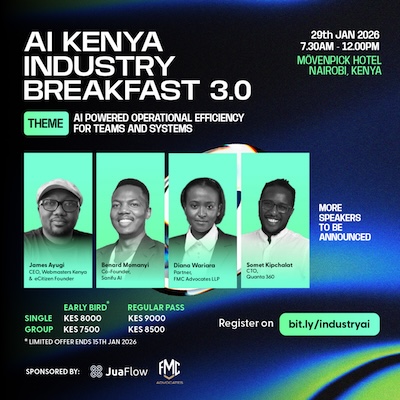
Kenya is among the Sub-Saharan African economies that set a new record in reforming their business climate. This is according to the 15th-anniversary edition of the World Bank Group’s annual Doing Business report.
The report notes that Kenya reduced the number of procedures required to register a business, and also reduced the time for import documentary compliance by utilizing a single window system. The report also notes that the country improved the reliability of electricity supply by investing in distribution lines and transformers and by setting up a specialized squad to restore power when outages occur and implemented an online platform (itax) for filing and paying corporate income tax.
The report which monitors the ease of doing business for small and medium enterprises around the world notes that a total of 83 business reforms were carried out in the past year in Sub Saharan Africa, surpassing the previous year’s record of 80 reforms. This brings to a total of 798 the number of reforms carried out in the past 15 years in the 48 economies of the region monitored by Doing Business 2018: Reforming to Create Jobs, released today.
The region is well represented in this year’s global top 10 improvers, based on reforms undertaken, with Malawi; Nigeria; and Zambia. Malawi, which implemented four reforms, made significant improvements in the area of Getting Credit by adopting a new law that sets clear rules related to bankruptcy procedures and by establishing a new credit bureau. Nigeria also improved access to credit by guaranteeing borrowers the right to inspect their credit data from the credit bureau and also made starting a business faster by allowing electronic stamping of registration documents. Reforms in Zambia also included the strengthening of access to credit by adopting a new Movable Property Act and by setting up a new collateral registry.
“The reform effort in Sub-Saharan Africa is singularly worth celebrating, as the region is beset with myriad crises, including conflict and violence,” said Rita Ramalho, Acting Director of the World Bank’s Global Indicators Group, which produces the report.
Much of the reform activity in the past year focused on the areas of Trading Across Borders and Starting a Business, with 15 reforms each, followed by Dealing with Construction Permits, where 14 reforms accounted for 64 percent of the 22 reforms recorded in this area globally. Zambia implemented a global automated system for customs data (ASYCUDA), making it easier for businesses to trade across borders, while Angola and Mozambique made trading across borders easier by improving port infrastructure.
Several economies, including Benin, Cabo Verde, the Democratic Republic of Congo, Gabon, Ghana, Niger, Nigeria and the Seychelles increased the transparency of dealing with construction permits by publishing regulations related to construction online. Angola also made dealing with construction permits easier and less time-consuming by improving its system for building permit applications.
Four other economies – Mauritania, Nigeria, Rwanda and Senegal – implemented five reforms each during the past year. Rwanda, which is second only to New Zealand in Registering Property, implemented online services to further facilitate property transfers. As a result, it now takes only seven days to legally transfer a property title in Rwanda.
Notable reforms in Senegal included the introduction of stricter pre-trial hearing rules that led to a reduction of the time necessary to resolve a commercial dispute. These new rules have reduced the time to enforce a contract from 925 days to 740 days. Senegal also made starting a business and registering property less costly by reducing the notary fees for company incorporation and lowering the costs of transferring property, respectively.
Mauritius, the region’s top-ranked economy, carried out four reforms, which included outsourcing the design and construction of sewerage connection works, thus, speeding up the process of obtaining a construction permit and improving processes to facilitate cross-border trade. Mauritius also made it easier to transfer property by reducing the transfer tax, implementing a complaint mechanism and publishing service standards.
In the ease of doing business global rankings, Mauritius is in 25th place, followed by Rwanda (41), and Kenya (80) as the region’s top-ranked economies.
The report, however, found out that Sub-Saharan Africa region continues to struggle in the area of Getting Electricity. On average, the report says obtaining an electricity connection takes 115 days in the region, compared to the global average of 92 days.
”We hope to continue recording the region’s successes in enabling entrepreneurship to address the challenge of job creation, particularly for the region’s millions of young women and men,” Rita Ramalho added.



